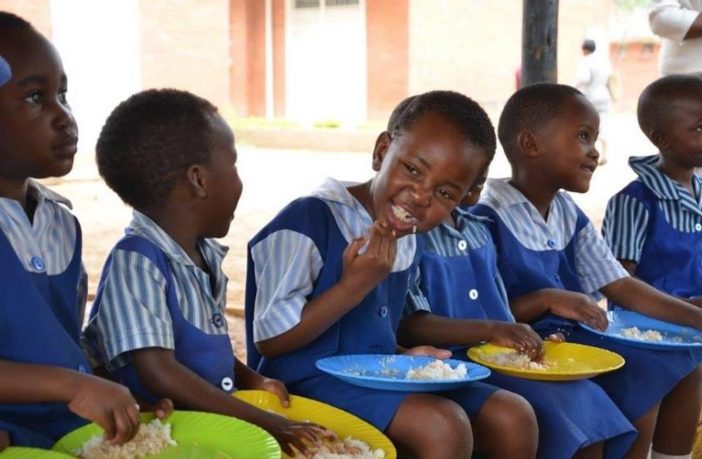South Sudan on Friday launched a four-year home-grown school feeding programme supported by the UN World Food Programme (WFP) to encourage enrolment and retainance of children in school.
According to WFP the progeamme would also support local smallholder farmers to produce food which stimulates agricultural productivity.
Mathew Hollingworth, WFP country director, said the 2020 to 2024 national homegrown school feeding strategy aims to fulfill five key objectives.
He said the objectives includes incentivising education for children from vulnerable communities, improving enrolment and also stimulating local production to help reduce the widening national food deficit which currently stands at 700,000 metric tonnes.
“The strategy itself has five key objectives, we want to incentivise education through the provision of school meals to children coming from vulnerable communities.
“This, in turn, promotes education, it promotes education outcomes, and it improves enrollment, it creates incentives to retain children in school and helps their performance to improve.’’
The program was launced in March 2018, by the ministry of education and general instruction (MOEGI) together with UN agencies like WFP and the UN Food Agricultural Organisation (FAO).
Hollingworth disclosed that strategy is critical for South Sudan which is seeking recovery from more than five years of conflict because it links the schools to smallholder farmers.
“We know most of the smallholder farmers are paid and by linking those linkages, we create a predictable, sustainable and reliable market place for those smallholder farmers.
“So we are linking education, children with farmers to create a program that integrates critical components to bring better development to this country.’’
He added that it would also motivate smallholder farmers to produce sufficiently and to supply the excess produce to those schools.
“We want to provide these smallholder farmers and others income-generating opportunities to improve their own livelihoods and indeed the lives of their children.’’
Kuyok A. Kuyok, secretary ministry of education, said South Sudan has 2.2 million children already out of school due to displacements caused by conflict.
He disclosed that the programme would also help reduce reliance on imported food.
“We do school feeding in our schools but most of the food that we supply in our schools is brought from abroad.
“We are departing from importing food to providing food locally for our people.’’
Kuyok said the programme would further help stimulate the agricultural economy of the country when smallholder farmers are provided with incentives and market.
Since 2019, WFP has been assisting 445,000 children across 1,116 schools in South Sudan.
According to WFP the South Sudan conflict has affected all areas of the country’s development including livelihoods, education and health.
“As a result enrolment and attendance rates plummeted to 62 per cent in 2015 from 85 per cent in 2009. With improved security situation attendance and enrolment have steadily increased to about 70 per cent in 2018.’’ it added.




